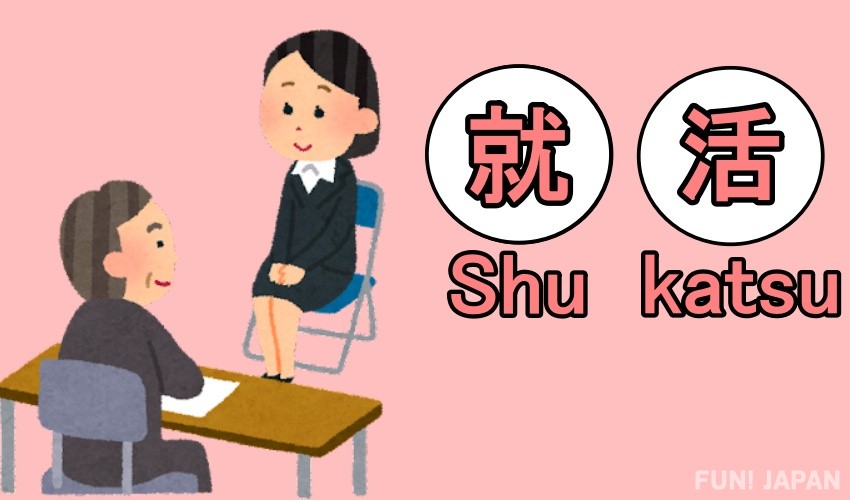
Hello! I'm Shimizu, a Japanese staff member of FUN! JAPAN. Working with colleagues from overseas at FUN! JAPAN, I recently noticed something. that is…
- The customs that I took for granted are actually unique to Japan, or "a slightly strange" to foreigners.
It seems that the "就活" (shukatsu, job hunting) to be introduced this time is also a custom peculiar to Japan. Shukatsu is a word that means "activity for college students to find a job after graduation." And many Japanese college students consider "shukatsu" to be "the most important event in four years of college life."
So, in this article, I will introduce the actual situation of "shukatsu" that Japanese university students stake their lives on. After reading the article, please write your opinions and impressions in the comments section!
"Young people in black suits" appear in spring
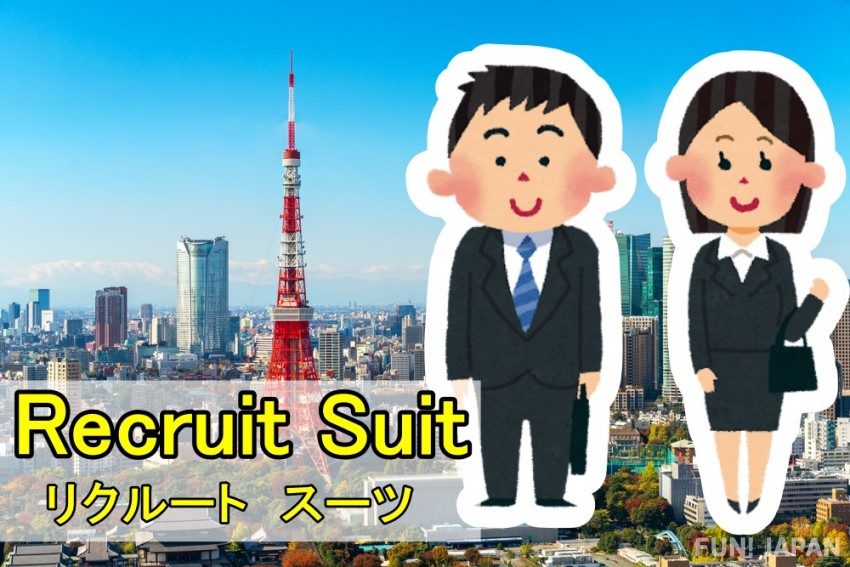
In Japan, from March to summer every year, we often see young people in the picture above on trains and in business districts.
They are college students who are doing "就活" (shukatsu, job hunting). "Shukatsu" is an activity in which university students apply for recruitment at companies or receive job interviews in order to find a job after graduation (= "就職活動", shushoku katsudo or job hunting activity, abbreviated as "就活" or shukatsu).
Many job hunting students wear black, non-personal suits like the one pictured above when they go to a job interview. This is a suit made for job hunting students and is called a "recruit suit" (リクルートスーツ in Japanese). People who normally dye their hair brown usually dye it black during the "job hunting" period.
Companies do not require students to come to the interview in this fashion. Nonetheless, there are several reasons why most students wear similar recruitment suits, dye their hair black in order to get a job.
- To give the interviewer the impression of "seriousness" and "cleanliness".
- It's a custom that has been going on for over 20 years, so the idea of job hunting = recruitment suits and black hair has become commonplace.
- If you dress differently, the hiring manager may think that you are "uncooperative".
Shocking from foreigners' perspective!? Japanese job hunting manners

Besides the recruit suits, "job hunting" has various special characteristics. But before that, I will first introduce the flow of job hunting.
In Japan, there is a unique system called "新卒一括採用" (Shinsotsu Ikkatsu Saiyo, batch recruitment of new graduates). This is a system in which a company recruits human resources for those who are planning to graduate from university at a fixed period every year, so the students have to receive job interviews while attending university and receive job offers while before graduation. The students who are job hunting are those who apply for this recruitment.
Generally, job hunting begins in earnest in March for the third year university students. This is because many companies will start recruiting personnel all at once in March. Job hunting begins in March, and after a hiring process such as an interview and proficiency test, the hiring company will be decided around June to autumn of that year. Then, the students graduate from university in March of the following year and start working at a company in April. In other words, job hunting starts more than a year before you actually start working.
The first hurdle in job hunting, the Entry Sheet
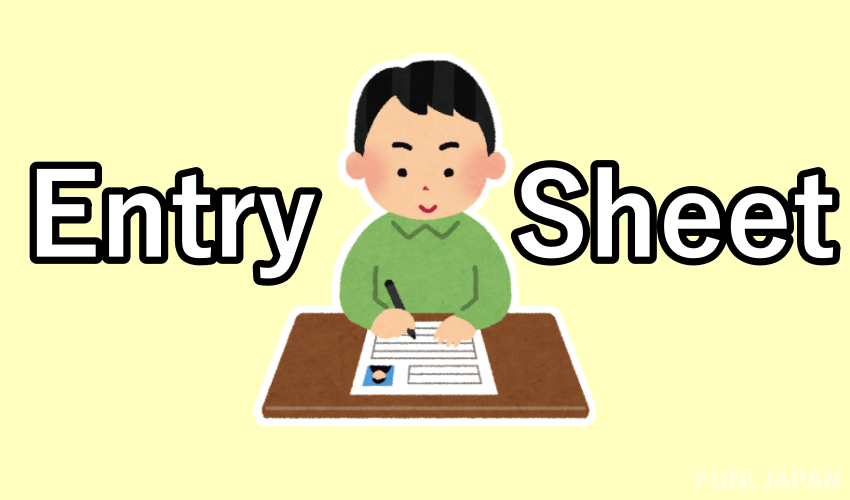
Job hunting begins with submitting an "entry sheet" to the company. The entry sheet is the item where you fill in your profile, strengths, etc., and the hiring manager of the company looks at this entry sheet and selects the student whom the company wants to interview.
The students are not always hired by companies that want to get in, so they submit entry sheets to dozens of companies, and some prolific students even submit to more than 100 companies.
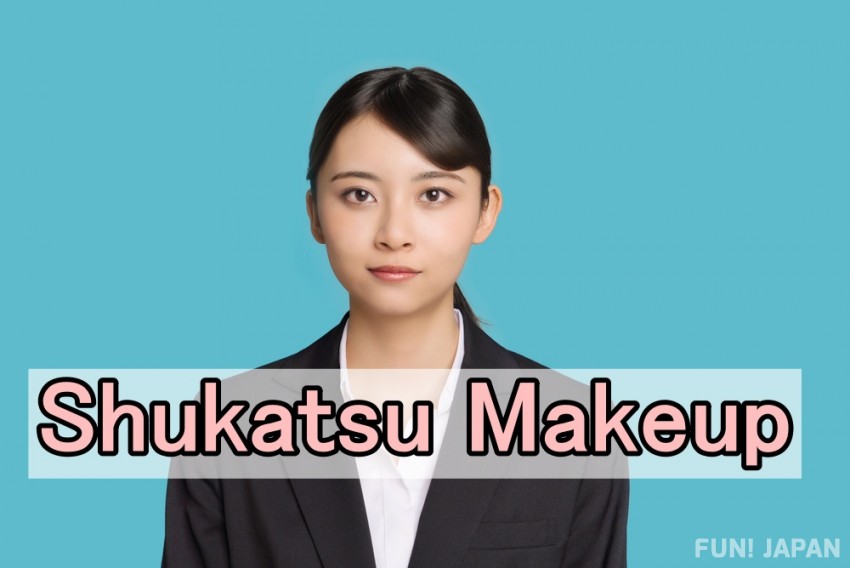
Students pay great importance to the facial photographs attached to the entry sheet, and many students spend around 10,000 yen to have a professional photographer take a picture. The make-up of female students who are job hunting is called "就活メイク" (shukatsu meiku, job hunting make-up). Job hunting make-up aims to appeal to the recruiters that the student "looks intelligent" and "has a sense of cleanliness".
Knock the door three times before entering!? Some interview rules that are too detailed
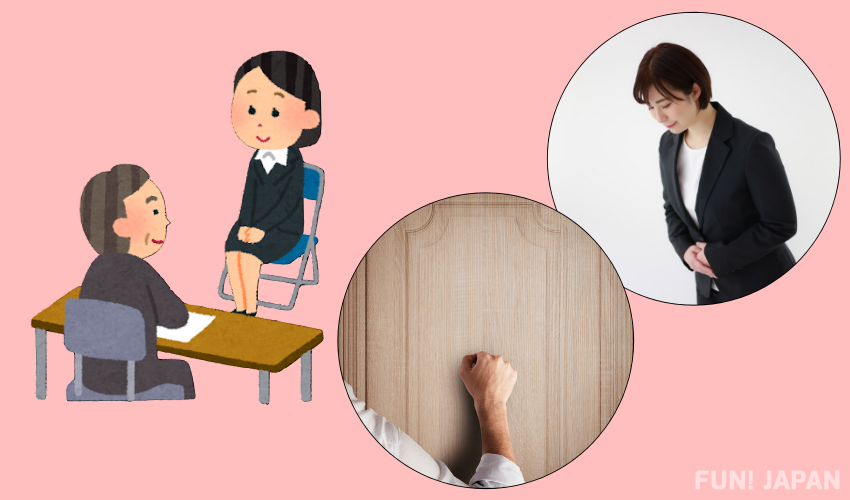
Now, when the entry sheet passes, the next stage comes to interview. In the case of a large company, many students apply at once, so there are many interview - the 1st interview, the 2nd interview, the 3rd rinterview, and then the final interview.
Besides recruiting suits, there are other surprising customs when taking an interview. For example…
- Students knock on the door three times before entering the interview room. Once the interviewer(s) in the room says "please enter", then the students open the door and enter the room.
- Align your hands on your lap during the interview.
- After the interview, bow to the interviewer in front of the door and say "excuse me" before leaving the room.
- After the interview, some students send emails and letters to the company to thank them for the interview.
Interviewers do not actually require students to have this etiquette. However, students behave as politely as possible to give the interviewer a better impression.
Now, there is a question that the interviewer always asks the students during the interview. That is "what is the thing that you put your effort on the most during your student life." To answer this question perfectly, students are desperate to create something to "put effort on", such as sports, part-time jobs, and volunteering, even long before job hunting begins.
In addition to the interview, the result of the proficiency test also affects the hiring / non-hiring outcome.
What is the "prayer mail" that you receive when you are rejected by a company?
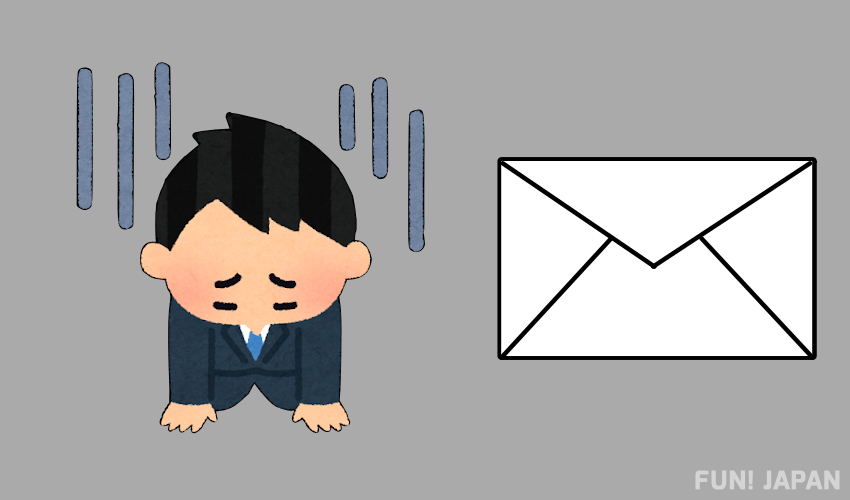
If the company that you applied for does not hire you, the company will send an email to the student informing them that they will not be hired. Students call the email "お祈りメール" (o-inori me-ru, a prayer email).
This is because the email notifying you of the rejection says "I wish you all the best in your future" at the end of the text. Many students say "I received a prayer email" or "I was prayed for" instead of saying "I was rejected".
The reason why Japanese people put enormous energy into job hunting

Job hunting is very tiring. A student may spend a lot of time preparing for entry sheets, interviews, and proficiency tests, and when hired, the student may be so happy and cry, and when not hired, the student may be sad and cry.
Why do Japanese people devote so much energy to job hunting? The following circumstances in Japan are related to this.
- The idea that "the place of employment is decided while still attending university" is firmly established, and there is a fear that the place of employment will not be decided before graduation.
- Japan still has a deep-rooted idea of "lifetime employment" (continuing to work until retirement at one company), and believes that if you work hard to find a job and join a large company or a well-known company, you will be able to live a stable life for the rest of your life.
However, recently, the number of people who have doubts about this kind of job hunting is increasing, and some companies allow students to apply at their favorite timing instead of recruiting human resources at a fixed time of the year. Also, the number of young people who want to work for one company for the rest of their lives is decreasing.
In addition, as the awareness of respect for diversity is increasing, more and more students and companies are opposed to the uniform job hunting style of wearing recruit suits and having black hair.
What is the number one company that Japanese university students want to get in?
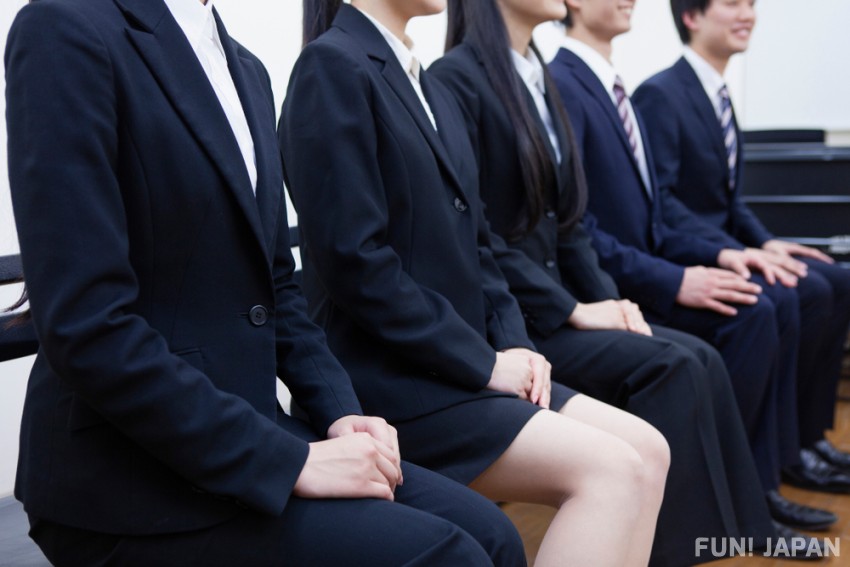
According to a survey conducted by Gakujo (学情), a media that disseminates information on job hunting, the most popular employment destinations for students graduating from university (including graduate school) in March 2023, ITOCHU Corporation was the number one among male students while Shueisha was the number one for female students.
ITOCHU is one of the major trading companies in Japan, and is famous for the average annual income of its employees exceeding 10 million yen. Shueisha is a major Japanese publishing company that publishes the fashion magazine "non-no" and the manga "Demon slayer: Kimetsu no Yaiba".
By the way, how did you feel about the slightly strange Japanese "job hunting"? If you like, please tell us about the job hunting situation in your country. Comments are welcome!
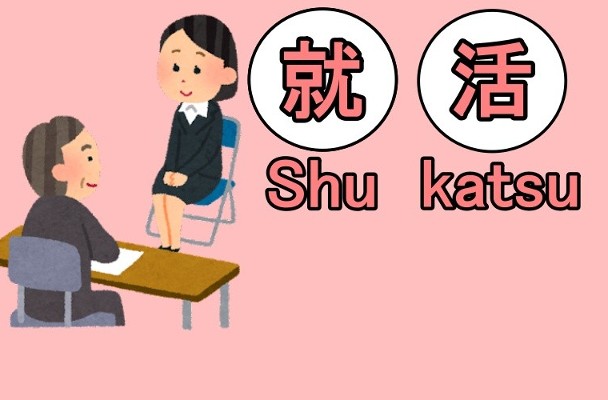
Comments